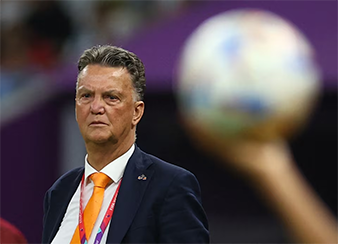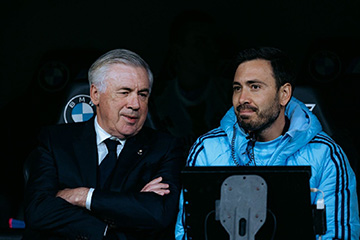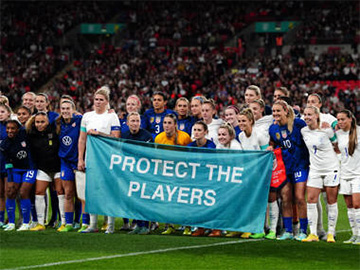International Football
NIGERIANS ARE THE FASTEST MARKSMEN AT FIFA U-20 WORLD CUP
BY KUNLE SOLAJA.
As the FIFA U-20 World Cup kicks off in Poland this Thursday, Nigeria already has a position in the record books. Among the nine fastest scorers in the 42-year history of the competition are two Nigerians.
The 1985, a record set by a Nigerian player, Monday Odiaka has not been equalled, 34 years after.
Monday Odiaka has remained the fastest marksman in the history of the competition. It took the Nigerian 14 seconds from kickoff for the Nigerian to score against Canada in 1985, a record that still stands to this day.
He is not the only Nigerian record holder in the competition. When Christopher Ohenhen fired in from freekick that enabled Nigeria beat hosts, Saudi Arabia 2-1 in 1989, it turned a milestone – the 500th goal of the tournament.

It was also at the Saudi 1989 that Nigeria produced the greatest comeback in the competition’s history as the Flying Eagles came from four goals down to level up at 4-4 against Saudi Arabia and eventually win on penalties.
Yet at that same tournament, Christopher Nwosu produced one of the greatest moments in the competition’s history. With just one minute to end the game with Czechoslovakia, Nigeria was desperately looking for an equalizer to be able to advance to the quarterfinals.
Nwosu picked the ball from the half line, ran past the Czech’s half of the field and paced past defenders as if they were not there.
He ended his solo run with a blistering shot that hit the roof of the net. The goal was adapted for television exhibition in Portugal to promote the next edition.
Almost in similar vein, Daniel Adejo’s last minute goal against Tahiti in 2009 became the 1,800th goal of the competition.
International Football
Veteran coach Van Gaal says he is cured of cancer

Veteran coach Louis van Gaal says he has been cured of cancer and is keen for a return to the higher levels of the game.
The 73-year-old announced three years ago that he was suffering from prostate cancer, but told a Dutch television talk show, “I’m no longer bothered by cancer.”
When he announced his illness, Van Gaal was the coach of the Dutch national team, but he has not worked since the last World Cup in Qatar in 2022.
“Two years ago, I had a few operations. It was all bad then. But it all worked out in the end. I have check-ups every few months, and that’s going well. I’m getting fitter and fitter,” he said.
Van Gaal, whose career has included stints at Ajax Amsterdam, Barcelona, Bayern Munich and Manchester United, reiterated a lack of interest in returning to club management but said becoming the national coach of a top-tier country could tempt him back.
He now serves as a special advisor to Ajax.
-Reuters
Join the Sports Village Square channel on WhatsApp: https://whatsapp.com/channel/0029Vaz7mEIGk1FxU8YIXb0H
International Football
Like father like son, Davide Ancelotti becomes Brazil’s Botafogo manager

In a compelling twist of football destiny, Davide Ancelotti is stepping into his own spotlight as he begins his first head coaching role at Brazilian club Botafogo—just months after parting ways with his legendary father, Carlo Ancelotti, at Real Madrid.
The 35-year-old has been appointed as Botafogo’s new manager, the club announced on Tuesday, following the sacking of Renato Paiva. Davide, who has spent the last decade working alongside his father at some of Europe’s top clubs—including Bayern Munich, Napoli, Everton, and Real Madrid—has signed a one-year deal with the Rio-based team.
This marks a significant milestone for the younger Ancelotti, whose career has long been shaped by his father’s influence, but who now faces the challenge of carving his own identity on the touchline.
The move comes shortly after both father and son departed Real Madrid at the end of last season, with Carlo taking over the Brazilian national team. Now, in a poetic alignment, father and son find themselves on different paths within Brazilian football—one leading the Seleção, the other steering the fortunes of a storied domestic club.
Botafogo’s decision to appoint Davide follows a controversial parting with Paiva, who was dismissed just days after their exit from the Club World Cup. Though he oversaw a stunning win over Champions League holders Paris Saint-Germain, a 1-0 extra-time loss to Palmeiras in the round of 16 proved to be his final act after just four months in charge.
As Davide Ancelotti begins this new chapter, all eyes will be on whether the son of one of football’s most decorated managers can step out from his father’s shadow—and perhaps, in time, build a legacy of his own.
Join the Sports Village Square channel on WhatsApp: https://whatsapp.com/channel/0029Vaz7mEIGk1FxU8YIXb0H
International Football
Players’ union, FIFPRO, wants 20-minute halftimes, more cooling breaks amid extreme heat

Global players’ union FIFPRO is exploring whether extending halftime to 20 minutes and introducing more frequent cooling breaks could better protect players from extreme heat.
Nine of the 16 host cities for the 2026 World Cup face conditions considered “extreme risk” for heat-related illness.
Atlanta, Boston, Dallas, Guadalajara, Houston, Kansas City, Miami, Monterrey and Philadelphia are expected to face dangerous levels of heat and humidity, posing player safety concerns and fuelling calls for mandatory cooling aids or schedule changes.
FIFPRO’s heat risk assessments are based on wet bulb globe temperature (WBGT), a measure combining temperature, humidity, solar radiation and wind speed to estimate how environmental conditions affect the body’s ability to cool itself.
Under FIFPRO guidelines, a WBGT reading above 28 degrees Celsius indicates conditions in which matches should be postponed or rescheduled to protect players’ health.
By comparison, world soccer governing body FIFA’s own guidelines set the extreme risk threshold higher, at 32 degrees Celsius WBGT – but even by that standard, six of the nine cities are still projected to exceed safe limits.
Major League Soccer in the U.S. has a threshold of 29 degrees Celsius WBGT.
“Cooling breaks at the 30th minute and 75th minutes are quite traditional, but from a physiological point of view it does not make sense,” said Vincent Gouttebarge, FIFPRO’s Medical Director.
“Even if you ingest more than 200 millilitres of fluid, you already cannot take it all. So I would definitely like to see some project where we look at the efficacy of perhaps more frequent but shorter cooling breaks – every 15 minutes, rather than only one during each half.”
LONGER HALFTIMES
Gouttebarge also questioned whether the traditional 15-minute halftime interval is sufficient when matches are played in extreme heat.
“You can imagine that halftime of 15 minutes might not be enough in order to decrease the core temperature,” he said.
“It could be a halftime of 20 minutes which would be significant. That has been shown in the laboratory and FIFPRO, together with the national union in Portugal in August, we are going to test this kind of mitigation strategy.”
The urgency of stronger heat protocols became clear at this month’s Club World Cup where two matches — Benfica-Bayern Munich in Charlotte and Chelsea-Esperance in Philadelphia exceeded the WBGT threshold FIFPRO considers unsafe.
“According to our position, those games should have been postponed later that day or rescheduled,” Gouttebarge said.
FIFPRO officials acknowledged that FIFA has responded constructively during the tournament by lowering thresholds for mandatory cooling breaks and improving pitch-side hydration, but stressed that proactive planning is critical.
“FIFA have been quite responsive once the tournament was under way,” said Alex Phillips, FIFPRO General Secretary.
“They have actually modified how they’ve been dealing with heat during the matches based on FIFPRO’s input, which is credit to the work of the team. Obviously, it would have been better if that happened in advance, but it’s better that they have adapted.”
FIFPRO warned that the risks highlighted at the Club World Cup are a preview of what players could face at the expanded 2026 World Cup.
“This is not just affecting the Club World Cup, but also future tournaments either in the U.S. or elsewhere in the world,” said Alexander Bielefeld, FIFPRO Director of Policy & Strategic Relations.
“We need a better balance between commercial interests and the health and safety of players,” he added, referring to earlier kick-off times to accommodate European television audiences.
-Reuters
Join the Sports Village Square channel on WhatsApp: https://whatsapp.com/channel/0029Vaz7mEIGk1FxU8YIXb0H
-

 WAFCON7 days ago
WAFCON7 days agoTensions Flare as Algeria Politicizes 2025 Women’s AFCON in Morocco
-

 OBITUARY2 days ago
OBITUARY2 days agoBREAKING: Former Nigerian President Muhammadu Buhari Dies at 81
-

 La Liga6 days ago
La Liga6 days agoFormer Real Madrid manager and Brazil Coach, Carlo Ancelotti sentenced to prison
-

 Nigerian Football3 days ago
Nigerian Football3 days agoEx-NFF President Maigari Pays Solidarity Visit to Recuperating Ibrahim Galadima in Kano
-

 MEDIA5 days ago
MEDIA5 days agoMumini Alao to Launch Autobiography with High-Profile Guests Set to Attend
-

 WAFCON4 days ago
WAFCON4 days agoGhana’s hopes hang in the Balance after a 1-1 draw with Mali
-

 WAFCON5 days ago
WAFCON5 days agoSuper Falcons Edge Botswana to Seal Quarter-Final Spot at WAFCON
-

 WAFCON1 week ago
WAFCON1 week agoBanyana Banyana Begin WAFCON Title Defence with Commanding Win Over Ghana




